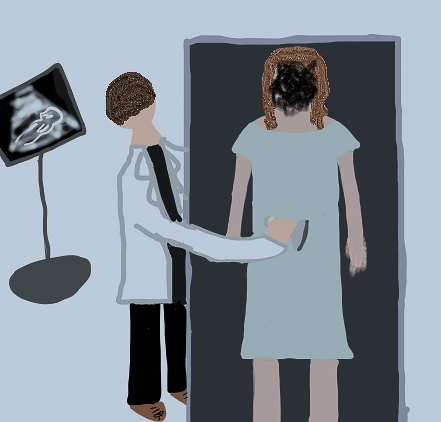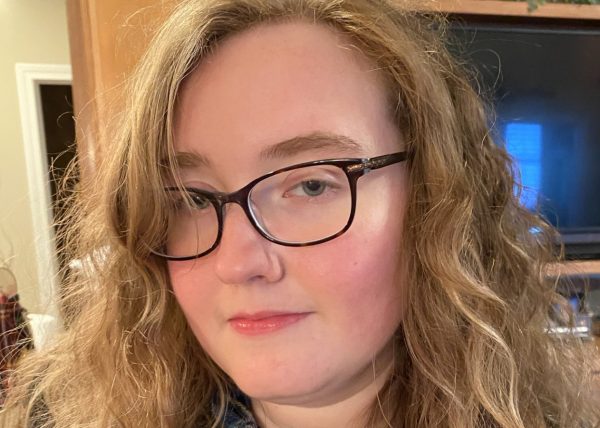An ethical nightmare: Philosopher blurs the lines of organ donation
March 20, 2023

Involuntary pregnancy and birth is something I always thought would stay confined within the works of sci-fi and modern dystopias. Cue my disbelief and ever-decreasing faith in humanity when I see an article cycling through my news feed proposing exactly that.
“Whole Body Gestational Donation” is a proposal published in the “Theoretical Medicine and Bioethics” journal written by Anna Smajdor, an associate professor of practical philosophy at the University of Oslo in Norway. WBGD is the idea of using a brain-dead body as a womb as an alternative to living surrogacies. It was published on Nov. 18, 2022, which was poor timing for the women’s rights atmosphere as Roe v. Wade was overturned almost exactly five months prior.
After my initial reaction of disgust and annoyance, I delved into the proposal instead of limiting myself to headlines and comment-section debates. While it is medically possible, it’s not cost-effective or efficient, and the proposal itself poses several ethical dilemmas despite Smajdor’s efforts to solve all of them.
The consent section of the proposal raised the most concerns for me. Smajdor wrote that brain-stem death – the state the donor would be in for WBGD – is extremely rare, so not many people would think to prepare for it. Therefore, WBGD should fall under an organ donation and a slight tweaking to the current laws would allow it.
“My suggestion of using the organ donation framework means that (a) we have more potential candidates and (b) we have existing consent systems whereby people either give consent proactively in advance or are deemed to have done so in the lack of any evidence to the contrary,” Smajdor wrote.
She is relying on people being uninformed so WBGD can be more widely utilized, essentially blindsiding people into unknowingly using their bodies for this purpose. This is especially troubling in countries where the system only has opt-out organ donation.
Assistant Professor of Kinesiology and Wellness, Jonathan Howard, said: “It may cause a lot of people to opt out of this organ donation because they don’t want to be in that particular scenario. And yeah, that’d be devastating for the organ donation field.”
Classifying WBGD as an organ donation, while technically true, would be misinformative, and therefore poses an ethical issue on the grounds of informed consent. Citizens’ understood definition of organ donation is the removal of organs after their death, not the usage of their organs while still in their preserved, brain-dead bodies.
Samantha Lewis, GHC alumna and laboratory coordinator, said: “I think that doing something like that without some sort of permission should be illegal in my opinion. But we live in a day and time right now where our bodies are not our choice.”
Lewis chose advanced directives as her Honor’s Project for her ethics in healthcare class while attending GHC. She said an advanced directive is a person’s written wishes in the event of a health crisis that renders them unable to make those decisions for themselves.
“I think the lines are really, really gray on this particular kind of concept. Because, yes, the uterus is an organ,” Lewis said. “However, I think for me, in my experience with advanced directives, I would say it would be more of an advanced directive type situation.”
Unfortunately, even advanced directives are not legally binding. “Myths and Facts About Health Care Advance Directives,” an article by the American Bar Association, says, “Advance directives are legally recognized documents and doctors must respect your known wishes, but doctors can always refuse to comply with your wishes if they have an objection of conscience or consider your wishes medically inappropriate.”
Smajdor even proposes “the use of male bodies” for WBGD with livers as the implantation site to avoid misogynistic accusations. Not only is it too late for that, but this poses another ethical flaw. If the vast majority of biological women wouldn’t even know about WBGD, much less prepare for it, then how would biological men?
“What happens when there are complications, especially when we’re talking about doing this in male participants… and attaching it to the liver?” Howard asked. “Well, you’re probably going to devastate that liver; that liver is not going to be able to be utilized for organ donation.”
Howard added that it would be taking away organs from those who could benefit from a donation, even if it’s not time-sensitive they receive one, and that collecting viable organ donations is “already hard enough as it is.” Harboring a needed organ donation in favor of a wanted one is asinine.
In addition, the amount of care a brain-dead WBG donor would need is obscene. They would need 24/7 monitoring, IV nutrition, ventilation and stimulation, as well as other specialized equipment and intensive care. This would only be acceptable if it was done in a specialized facility instead of a hospital so the hospital resources can be distributed to people who need it.
All this special care costs more money than most of us would see in our lifetimes, and it doesn’t even account for the use of IVF (in vitro fertilization), which can cost up to $30,000 per round.
“A quick, rough estimate [of WBGD]… probably half a million to $1 million bucks,” Howard said. “Now, this wouldn’t necessarily be done in a hospital setting, but that can run $10,000 to $20,000 a day. So if you do the math on that, 30 days in a month, you’re talking $300,000 times nine months is $1.8 million…”
WBGD requires a lot of time, money and resources for a desired luxury that only, maybe, the top 2% can comfortably afford. People want babies; they are not a necessity for life. Social culture has pushed people to be obsessed with babies being their own flesh and blood instead of adopting one that needs a loving home.
Smajdor’s proposal has only shed light on how lax the organ donation system is. There must be stricter guidelines and laws for informed and written consent on such matters.
Smajdor’s research was thorough, and her paper was informative and sensitive to social issues, but I can only see WBGD being a pipe dream in my lifetime. Howard sums it up nicely:
“…if we’re going to do this, we might as well go to more of a lab-based growth. And I think the cost versus the benefit ratio is not really there, the cost of losing organs, the cost of costing some people their lives, or quality of life, over generating a new life when we have other options.”





































































